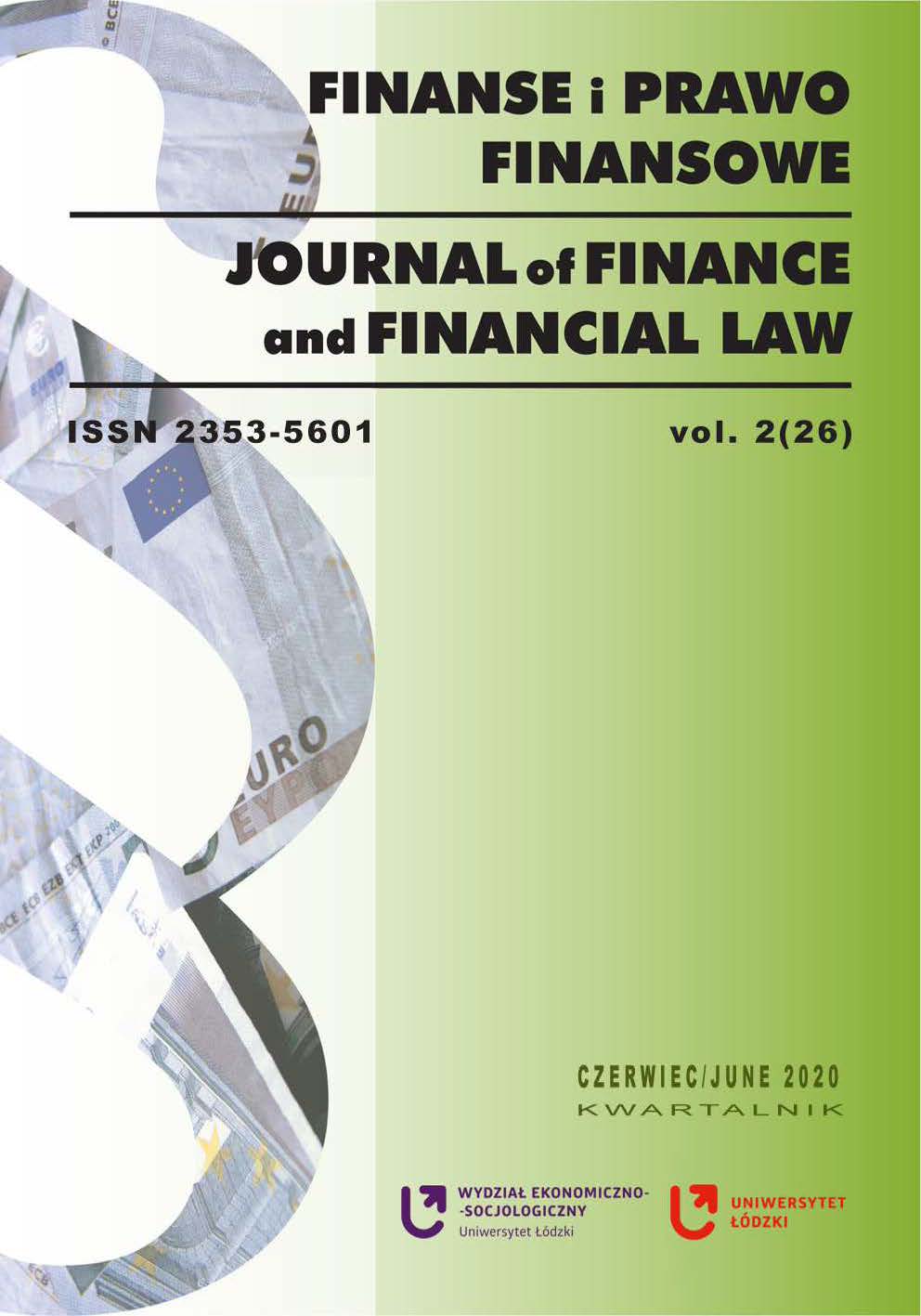Pandemic or Generational War?
DOI:
https://doi.org/10.18778/2391-6478.2.26.07Keywords:
COVID-19 pandemic, personal finances, crisis management, nanofinanceAbstract
The article deals with the COVID-19 coronavirus pandemic and its potential impact on the economy, public finance system and personal finances. The shock of the virus outbreak and expansion on a global scale poses enormous challenges to economies, public finances and health systems related to the threat of recession, drastic reduction in personal income in households, the need to develop government programs mitigating the effects of a pandemic, and the central bank joining in the form of rate cuts interest and reserve requirements, as well as the launch of non-standard monetary policy instruments quantitative easing (QE). The aim of the study is to propose a language of nanofinance to describe a pandemic as a destruction of the mechanism of intergenerational and intra-generational solidarity. The main hypothesis of the study is that the quality of financial risk management of everyday life will determine the scale of financial losses and the time necessary to overcome the socio-economic collapse caused by a pandemic.
Downloads
References
Anderson R.M., Heersterbeek H., Klinkenber D., Hollingsworth D.T., 2020, How will country-based mitigation measures influence the course of the covid-19 epidemic? „The Lancet”, March.
Google Scholar
Atkeson A., 2020, What will be ten economic impact of COVID-19 in the US? Rough estimates of disease scenarios, „NBER Working Paper”, no. 26867.
Google Scholar
Auer R., Cornelli G., Frost J., 2020, Covid-19, cash, and the future of payments, „BIS Bulletin”, no. 3.
Google Scholar
Banham G., 2020, In this coronavirus crisis, do families have enough savings to make ends meets?, Resolution Foundation.
Google Scholar
BIK, 2020a, BIK Indeks – Popyt na Kredyty Mieszkaniowe wyniósł w marcu 2020 r. (–3,1%), 6.04.2020.
Google Scholar
BIK, 2020b, Koronawirus a popyt na kredyty ratalne, 8.04.2020.
Google Scholar
Blim M., 2018, Pracownik i jego kompetencje cyfrowe, 1.03.2018, https://aspolska.pl/pracownik-i-jego-kompetencje-cyfrowe/ [dostęp 4.04.2020].
Google Scholar
Dolot A., 2020, Wpływ pandemii COVID-19 na pracę zdalną – perspektywa pracownika, „E-men-tor”, nr 1.
Google Scholar
Fan V.Y., Jamison D.T., Summers L.H., 2016, The inclusive cost of pandemic influenza risk, „NBER Working Paper”, no. 22137.
Google Scholar
G-20, 2020, Statement on COVID-19, BIS.
Google Scholar
How to pay for the pandemic, 2020, „The Economist”, 25.03.2020.
Google Scholar
Huynh K.P., Molnar J., Shcherbakov O., Yu Q., 2020, Demand for Payment Services and Consumer Welfare: The Introduction of a Central Bank Digital Currency, „Bank of Canada Staff Working Paper”, no. 7.
Google Scholar
Koronawirus odbiera pracę i pustoszy portfele Polaków, 2020, https://media.bik.pl/informacje-pra-sowe/498172/koronawirus-odbiera-prace-i-pustoszy-portfele-polakow [dostęp 14.04.2020].
Google Scholar
Majos A., 2017, Kompetencje cyfrowe pracowników MŚP. Polska na tle UE, „Biuletyn Euro-Info”, nr 1.
Google Scholar
Myck M., Oczkowska M., Trzciński K., 2020a, Skala ryzyka finansowego dla gospodarstw domo-wych: pierwsza fala konsekwencji gospodarczych pandemii COVID-19, Centrum Analiz Ekonomicznych, Komentarze CenEA, 22.03.2020.
Google Scholar
Myck M., Oczkowska M., Trzciński K., 2020b, Zamknięte szkoły: warunki uczniów do nauki zdalnej w okresie pandemii COVID-19, Centrum Analiz Ekonomicznych, Komentarze CenEA, 28.03.2020.
Google Scholar
Waliszewski K., 2020, Determinanty recesji na rynku pożyczek pozabankowych w Polsce, „Finanse i Prawo Finansowe”, nr 1(25).
Google Scholar
Downloads
Published
How to Cite
Issue
Section
License

This work is licensed under a Creative Commons Attribution-NonCommercial-NoDerivatives 4.0 International License.














